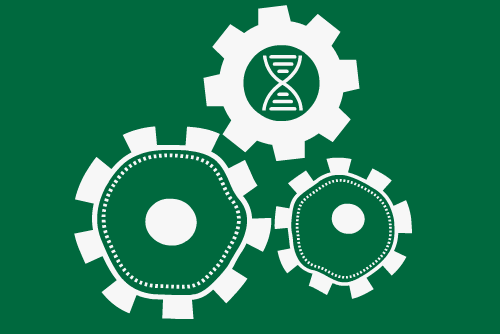- Undergraduate
Bachelor's Degrees
Bachelor of ArtsBachelor of EngineeringPartner School Dual-DegreeUndergraduate AdmissionsUndergraduate Experience
- Graduate
Doctoral Degrees
Doctor of PhilosophyPhD Innovation ProgramDoctor of Medicine-PhDGraduate AdmissionsGraduate Experience
- Research
- Entrepreneurship
- Community
- About
-
Program Areas

Biological & Chemical Engineering
Within their engineering sciences degree, students may choose a concentration in B&CE which includes courses and research in bio-inspired systems, circuits, and processes as well as biotherapies and biofuels.
B&CE Program Area Lead: Margie Ackerman
Learn More

Biomedical Engineering
Within their engineering sciences degree, students may choose a concentration in BME which includes courses and research in both basic and applied science and engineering, as well as translational science, to address grand challenges in human health.
BME Program Area Lead: Ryan Halter
Learn More
Electrical & Computer Engineering
Within their engineering sciences degree, students may choose a concentration in ECE which includes courses and research ranging from semiconductor devices to advanced communication networks, from self-powered sensors to electric cars, from wearable devices to cognitive medical imaging, and from autonomous vehicles to smart cities.
ECE Program Area Lead: Kofi Odame
Learn More
Energy Engineering
Within their engineering sciences degree, students may choose a concentration in Energy Engineering which includes courses and research in energy conversion, storage, transmission, and utilization, the transition to sustainable energy sources, and improving access to and management of energy systems.
Energy Engineering Program Area Lead: Lee Lynd
Learn More
Materials Science & Engineering
Within their engineering sciences degree, students may choose a concentration in MSE which includes courses and research in fields such as ice physics, nano- and bio-materials, energy harvesting and storage, and materials modeling.
MSE Program Area Lead: Jifeng Liu
Learn More
Mechanical, Operations & Systems Engineering
Within their engineering sciences degree, students may choose a concentration in MOSE which prepares students to view the world as a series of interconnected systems with various feedback loops where engineers can zero in on bottlenecks and find ways to address them using available tools.
MOSE Program Area Lead: Vikrant Vaze
Learn MoreEngEd Program Area (faculty only)

Engineering Education
The EngEd Program Area* is driven by a team of faculty committed to advancing human-centered, interdisciplinary, creative, and inclusive teaching and learning through mentorship, evaluation, scholarship, and more.
*EngEd is a field of concentration for faculty. Thayer is not yet offering curricular or concentration options in EngEd for students.
